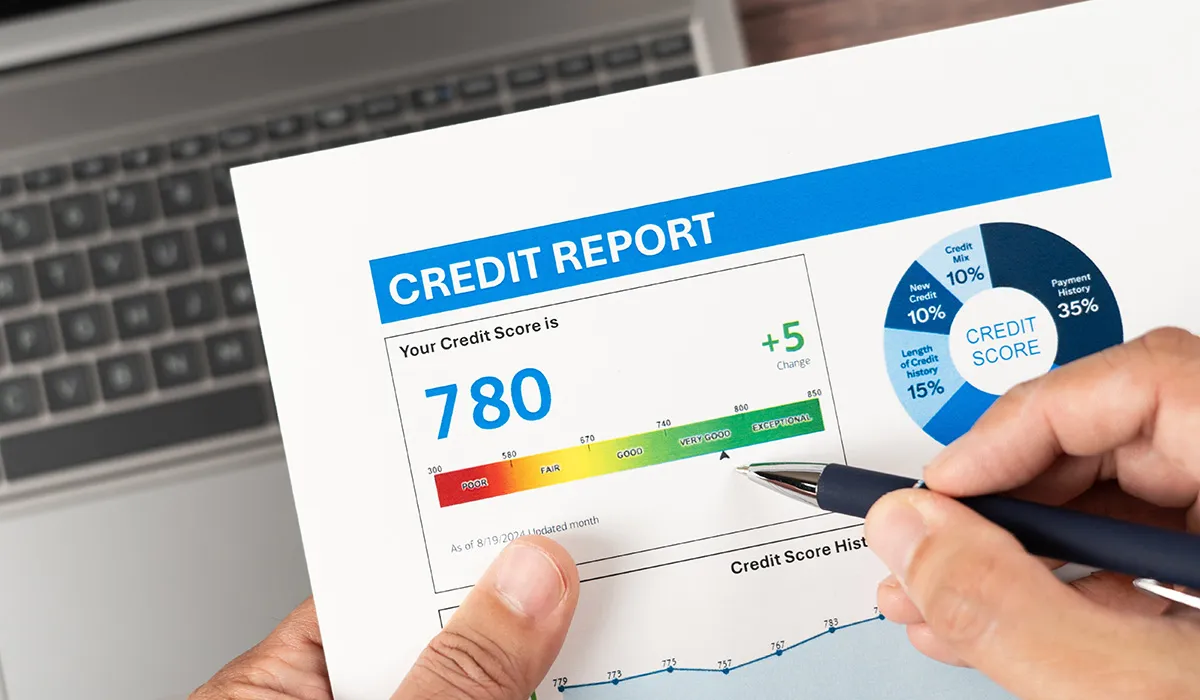Your credit score is one of the most important numbers in your financial life. It affects your ability to get loans, qualify for credit cards, secure a mortgage, and even rent an apartment or get certain jobs. Understanding how credit scores work and how to maintain or improve them can save you money, reduce stress, and open doors to financial opportunities.
What Is a Credit Score?
A credit score is a three-digit number that represents your creditworthiness — basically, how likely you are to repay borrowed money on time. Lenders, landlords, and even some employers use it to make decisions about loans, housing, or employment.
The most commonly used credit scores are FICO® scores, which range from 300 to 850:
- Excellent: 800–850
- Very Good: 740–799
- Good: 670–739
- Fair: 580–669
- Poor: 300–579
What Factors Affect Your Credit Score?
Your credit score is calculated based on several key factors:
- Payment History (35%)
Paying bills on time is the single most important factor. Late or missed payments can significantly lower your score. - Amounts Owed / Credit Utilization (30%)
This measures how much of your available credit you’re using. Keeping balances low relative to your credit limits can improve your score. - Length of Credit History (15%)
A longer credit history generally helps your score, as it demonstrates experience managing credit over time. - Credit Mix (10%)
Having a mix of credit types — credit cards, installment loans, and mortgages — can positively impact your score. - New Credit / Inquiries (10%)
Opening several new accounts in a short period can temporarily lower your score, as it may signal higher risk.
Why Your Credit Score Matters
A good credit score can save you thousands of dollars over time. It can:
- Lower interest rates on loans and credit cards
- Improve your chances of approval for mortgages or auto loans
- Reduce security deposits for utilities or rentals
- Reflect positively in employment background checks for certain positions
Conversely, a poor credit score can make borrowing more expensive and limit your financial options.
Tips for Improving Your Credit Score
- Pay Bills on Time: Set reminders or automatic payments to avoid late fees.
- Reduce Debt: Pay down high-interest credit cards first to lower your credit utilization.
- Avoid Opening Too Many Accounts at Once: Space out applications for new credit.
- Check Your Credit Report Regularly: Look for errors or fraudulent activity and dispute them if needed.
- Keep Old Accounts Open: Length of credit history helps your score, so avoid closing older accounts unnecessarily.
Final Thoughts
Your credit score is more than just a number, it’s a key to financial freedom. By understanding what affects your score and taking proactive steps to manage it, you can improve your financial health and open doors to opportunities. Start today by checking your credit report, reviewing your accounts, and making a plan to strengthen your credit over time.

